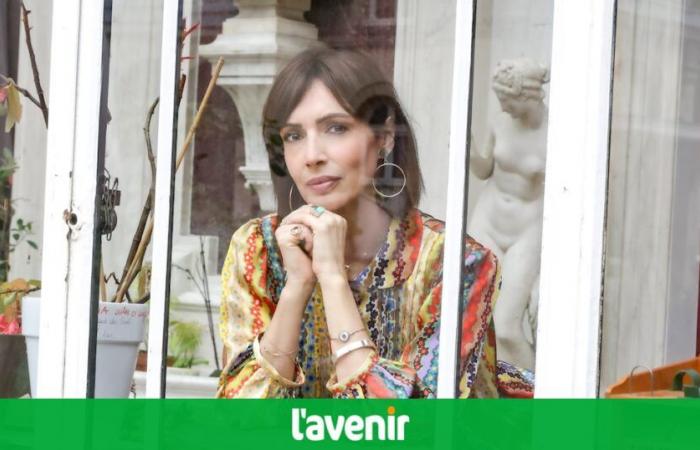
“It was a kind of obvious thing, an obligation” to write this book, as Géraldine Maillet explains. Mamie Téti’s illness “was such an emotional shock, such an intimate explosion, that I wanted to use writing to get through that period.”
Because with this stroke, “in the space of a few seconds, your life changes”, analyzes the author, remembering her grandmother’s face “which is dripping”, her facial asymmetry. “Afterwards, there is a sort of obstacle course between the moment when my grandmother is normal, independent, and today, where she is placed in an EHPAD (a medical establishment for dependent elderly people, Editor’s note)where she can no longer walk. His life no longer belongs to him.”
“You don’t give a voice to the extreme right?” The response of a Belgian journalist to this question from Géraldine Maillet amuses the French web (video)
A difficult journey then begins for Géraldine Maillet and her family. “I wanted to freeze each day I went to see her, each stage of the illness,” explains Géraldine Maillet. “I realized that everyone was going through the same situation with a parent, an elder. We are all in the same boat.” While Mamie Téti sinks a little deeper into non-existence every day, the author paints, in a story full of humor, tenderness and gratitude, the portraits of “the incredible caregivers” she met, going from stretcher bearer to doctor.
“In the media, we keep saying that we die in emergency rooms, that there is mistreatment in EHPADs. I am not at all saying that it does not exist, but it It’s not just that. There are also incredible people who take care of our elderly people and save them. As they were invisible to my grandmother, I wanted to make them visible, to give them some sort. of humanity, a consistency, a trace” through this work. “Even if they spent ten minutes with a stretcher or an hour with thrombolysis, they were helpful in my grandmother’s recovery process.”
“She has become a fragile and useless larva”
And yet, Mamie Téti has become, as the author writes, “a fragile and useless larva”. “It’s reality,” recognizes Géraldine Maillet. “I accepted her new world, without judging it. The caregivers helped me a lot to accept it, because they didn’t know my grandmother before. It will never be the same again, and it It’s like that.”
Because Mamie Téti asks the time every five seconds. Or only asks for chocolate. “After all, is it really serious? Well no, actually, because those are her criteria. In my world, it can quickly become unbearable. But I shouldn’t judge her.”
“Old age is not an illness”
Géraldine Maillet does not really have a message to convey through her nineteenth novel. “I’m wary of the messages because I think it’s pretentious. I don’t have the stature or the capacity,” she says. But, “I would like us to consider that old age is not an illness.” “It’s not the apartheid of life. It is an integral part of society, we have to go visit our old people, tell them that we love them, bring them a little happiness. And this, even if we consider that they are useless We must accept it because we will all be the old dependent of tomorrow. And then, I also wanted to humanize our caregivers. because in fact, they are confronted with old people who don’t speak to them, who don’t respond to them or when they do speak to them, they speak to them very badly and with a lot of aggression because of the illness. It’s hard for them. Even a patient’s family sometimes has no regard for caregivers. So say hello and ask them how they are.”
And Grandma Téti? She is doing well, even if “she has forgotten her previous life”.





